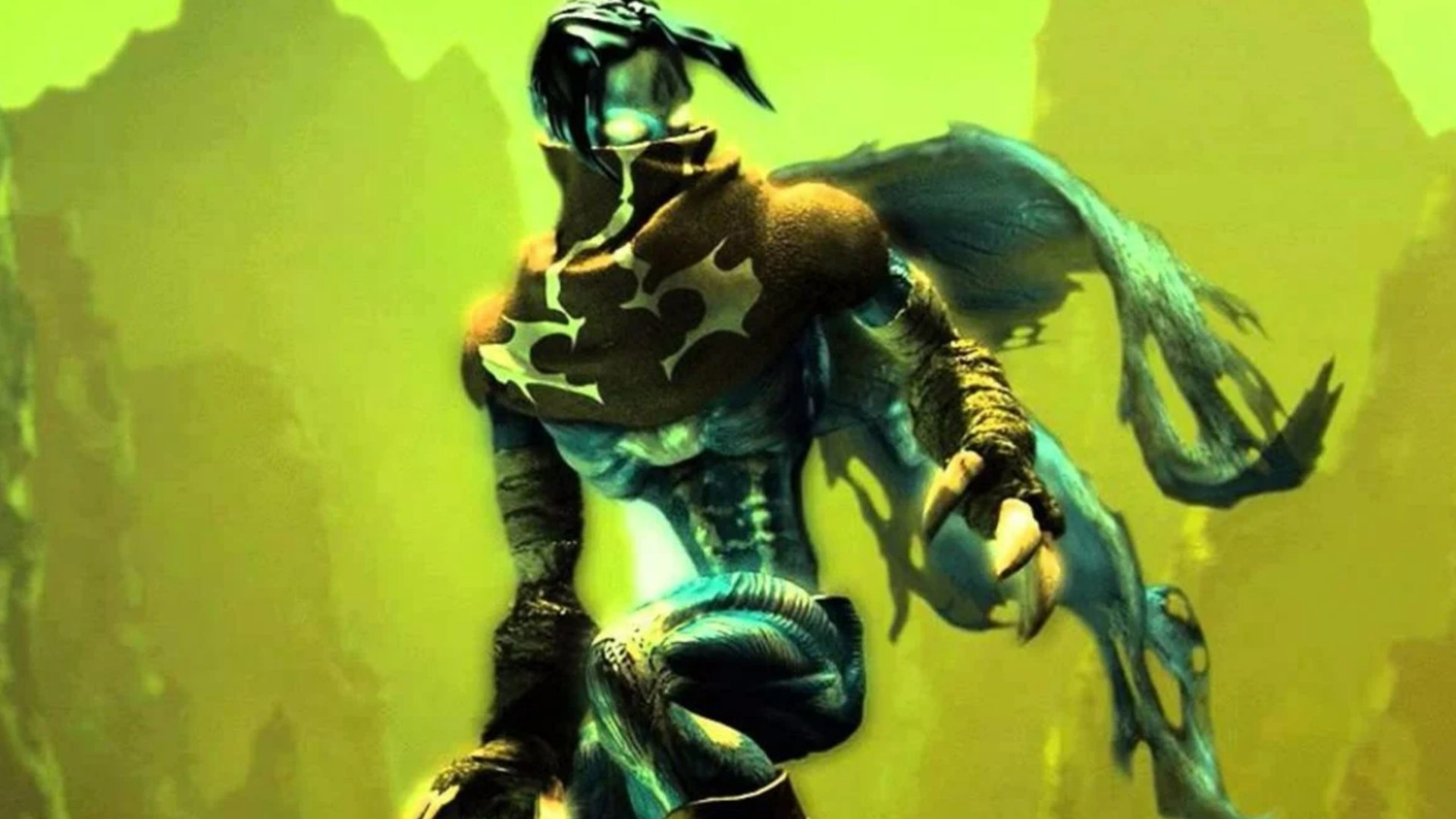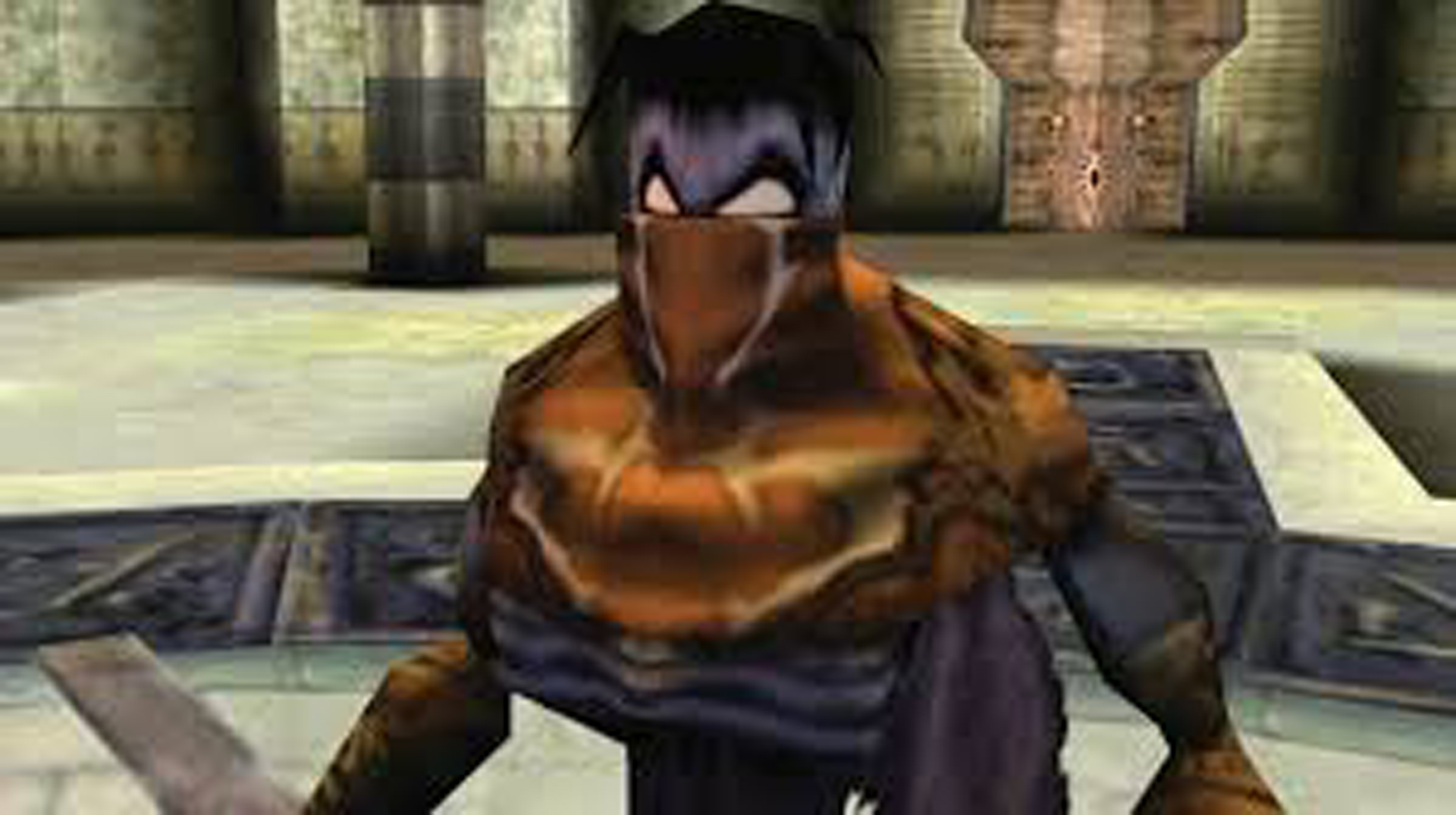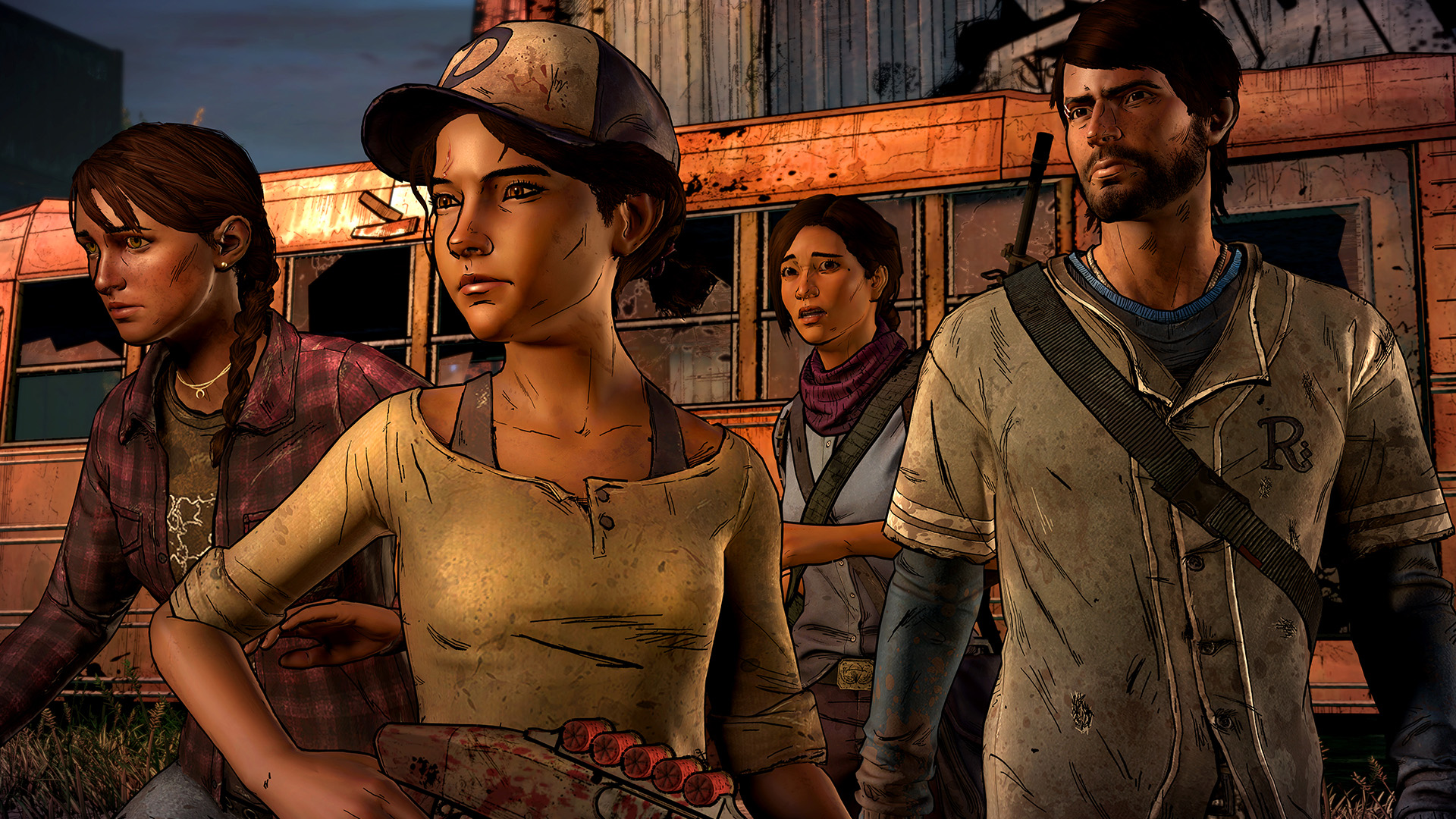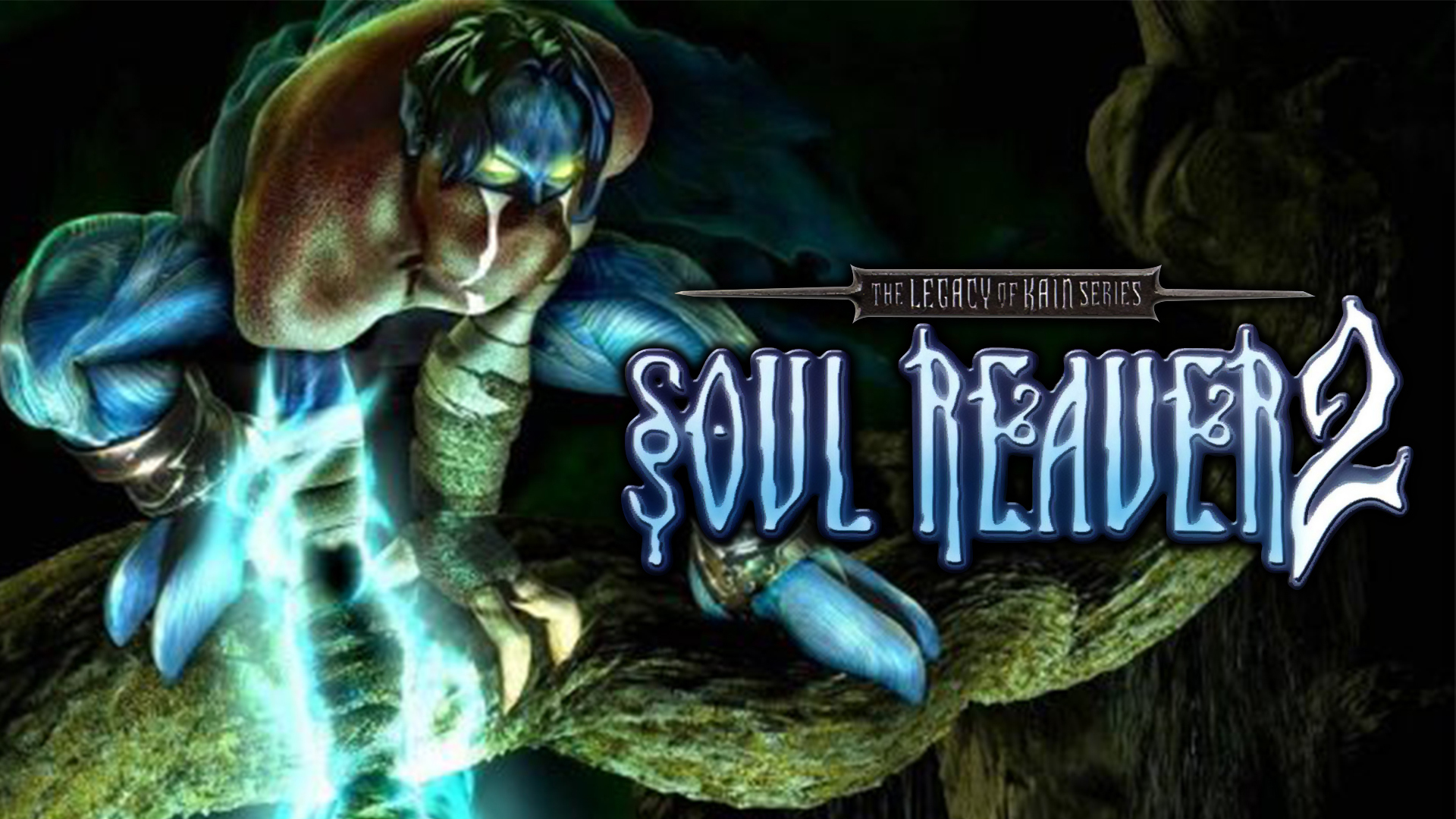Embracer Group's Square Enix deal has huge implications – but all I want is a Soul Reaver remaster
Is a reworked Legacy of Kain: Soul Reaver game too much to ask for?

Earlier this week, Square Enix sold Crystal Dynamics, Eidos-Montreal, and Square Enix Montreal to the Embracer Group in a deal said to be worth $300 million. In one fell swoop, the former outfit relinquished somewhere in the vicinity of 50 games across its portfolio, including the rights to some of its biggest hitters in Tomb Raider, Deus-Ex, Thief, and Legacy of Kain.
In the grand scheme of video game company buyouts, this one is a big one, with some pretty significant implications going forward. I'm no financial expert, but $300 million to acquire all of that seems like a decent bit of business for the Embracer Group, especially given the fact it now has its hands on the recently revealed in-development Tomb Raider game being made in Unreal Engine 5. On that, Crystal Dynamics has promised to "push the envelope of fidelity" and to give us the "high-quality, cinematic action-adventure experience that fans deserve from both Crystal Dynamics, and the Tomb Raider franchise." Which is exciting. Now, replace 'Tomb Raider' in that last sentence with 'Legacy of Kain: Soul Reaver', and tell me butterflies aren't flooding your stomach. You can't? I don't blame you.
World shifting


For the uninitiated, Legacy of Kain: Soul Reaver was released in the summer of 1999 on the PSOne (the following January on Dreamcast) to become the second entry in the dark fantasy vampire series. Preceded by 2D hack-and-slash, action-adventure game Blood Omen: Legacy of Kain, Soul Reaver was a sequel in pretty much every way imaginable – extending its forerunner's narrative timeline, and, crucially, transitioning to 3D and introducing a wealth of new, refined, and ahead-of-its-time game mechanics, not least the ability to shift realms. Video games have given us many jaw-dropping, mind-boggling eureka moments over the last 23 years since – BioShock's 'Would You Kindly', Braid's perspective-juggling, Breath of the Wild's first steps into Hyrule, The Last of Us 2's early violent exchange, to name but a few – but the very first time I moved planes in Soul Reaver is still among my favorite video game moments.
At just 13 years old, discovering my actions in one dimension impacted those in another totally blew my mind. I'd then spend hours untangling the puzzles that required me to flit between worlds, in something that was, in essence, a broader, more sophisticated slant on Zelda: A Link to the Past. We've seen flashes of this in other games between times, granted – as a horror fan, Silent Hill's Otherworld springs to mind – but for me, the only games that have since balanced intelligence and intuitiveness on this level are 2007's Portal and its 2011 sequel. And while there are now six games in the wider Legacy of Kain series, Soul Reaver is the one that fans remember the most.
Our own Leon Hurley made the case for a Soul Reaver remake earlier this year, billing it as the perfect way to bring the series back on PS5. I'd struggle to argue with that, and agree that tapping into the game's abiding nostalgia would be key in reimagining protagonist Raziel's adventure today with flashy visuals and modern controls. I appreciate that some Legacy of Kain fans would prefer something in the way of a conclusion to the series, but the fact that the Resident Evil 2 and 3 remakes preceded Resident Evil Village, for example, proves success can be struck in reinventing the old while also progressing the new. A quick glance at Reddit shows players are still finding ways to play Soul Reaver today, and are keenly crafting Raziel-shaped profiles in popular modern games, such as Elden Ring.
Fresh hope

"A Legacy of Kain: Soul Reaver remake is a no-brainer. You know it makes sense. Recapturing that magic. Reimagining what worked. Tapping into that nostalgia. Bringing Amy Hennig back."
So what of the Embracer Group itself? According to a press release issued shortly after the deal's announcement, a spokesperson said the company plans to focus primarily on Tomb Raider and Deus Ex, but did specifically name-check the Legacy of Kain and Thief series as other areas of interest moving forward. Assuming the deal goes through as planned (it's expected to officially close between July and September), Embracer Group will welcome 1,100 new employees, upping its total workforce to 14,000, 10,000 of which are said to be "engaged game developers", across 124 internal studios. Again, business is far from my forte, but to put this $300 million, multi-studio deal into perspective, Embracer Group purchased Borderlands developer Gearbox alone in February 2021 for $1.3 billion.
Having also acquired Dark Horse Comics in December last year, the Embracer Group is clearly focused on growing its portfolio, but, naturally, how this impacts actual development studios and what they choose to work on is a different consideration entirely. In a post-announcement Q&A, Embracer Group CEO and co-founder Lars Wingefors was asked specifically about the future of Crystal Dynamics' Guardians of the Galaxy games, to which he said: "All games that have been developed by the studios are included in the transaction. However, a number of external approvals are needed from external parties in order to close this transaction… we need to wait until closing, unfortunately, to get more color around IPs and the studios."
Sign up to the GamesRadar+ Newsletter
Weekly digests, tales from the communities you love, and more
All of which means we shouldn't hold our breath for news on, well, anything until this deal closes. And even then, your guess is as good as mine regarding how the Embracer Group might influence its newly acquired studios, far less which unannounced projects they might pursue next. For me, though, a Legacy of Kain: Soul Reaver remake is a no-brainer. You know it makes sense. Recapturing that magic. Reimagining what worked. Tapping into that nostalgia. Bringing Amy Hennig back. I mean, if Cory Barlog can return for God of War, then why the hell not?
How many of the best action games also feature vampires?

Joe Donnelly is a sports editor from Glasgow and former features editor at GamesRadar+. A mental health advocate, Joe has written about video games and mental health for The Guardian, New Statesman, VICE, PC Gamer and many more, and believes the interactive nature of video games makes them uniquely placed to educate and inform. His book Checkpoint considers the complex intersections of video games and mental health, and was shortlisted for Scotland's National Book of the Year for non-fiction in 2021. As familiar with the streets of Los Santos as he is the west of Scotland, Joe can often be found living his best and worst lives in GTA Online and its PC role-playing scene.


